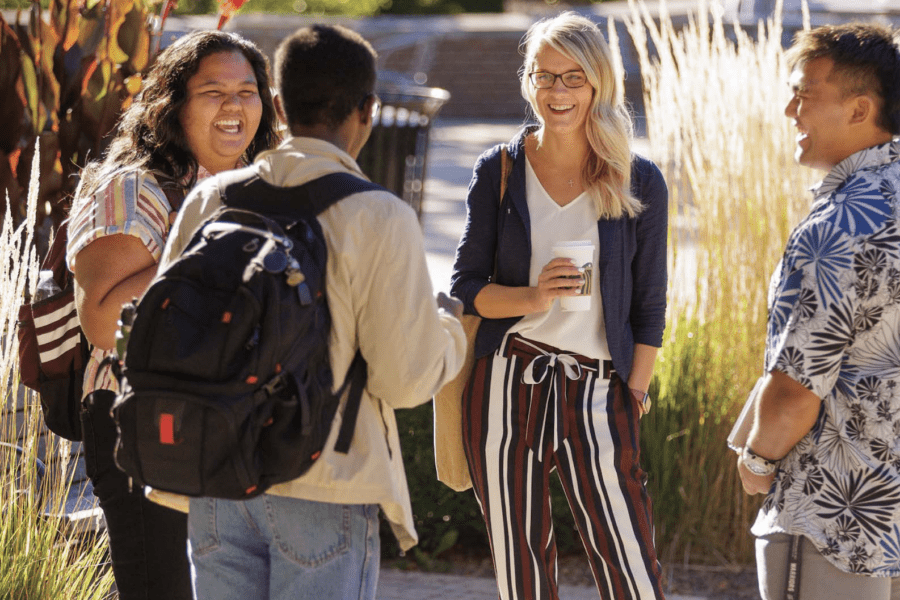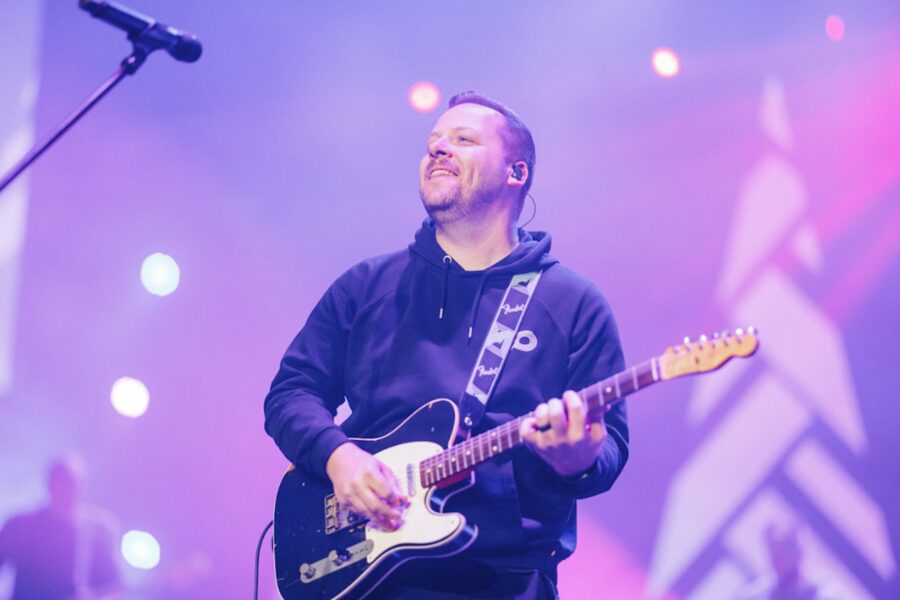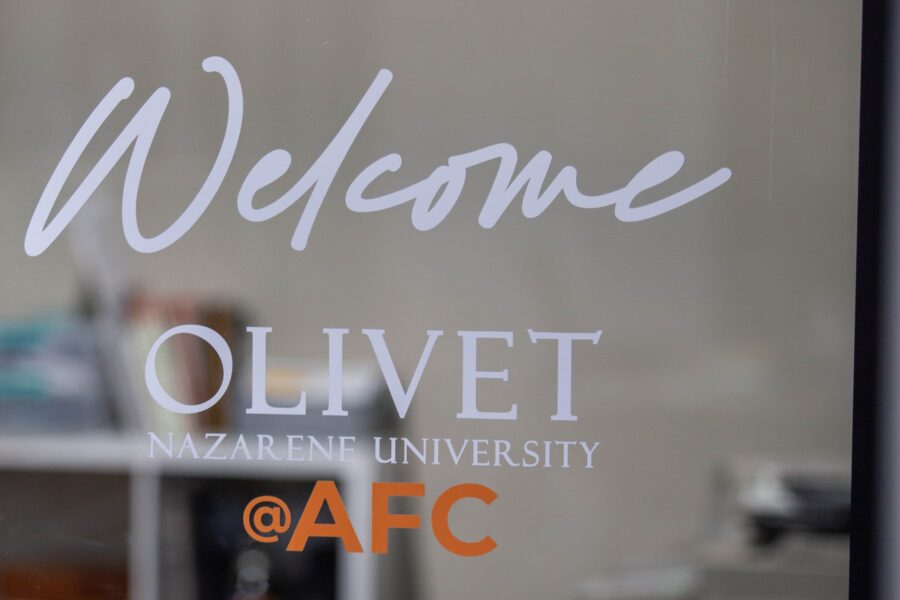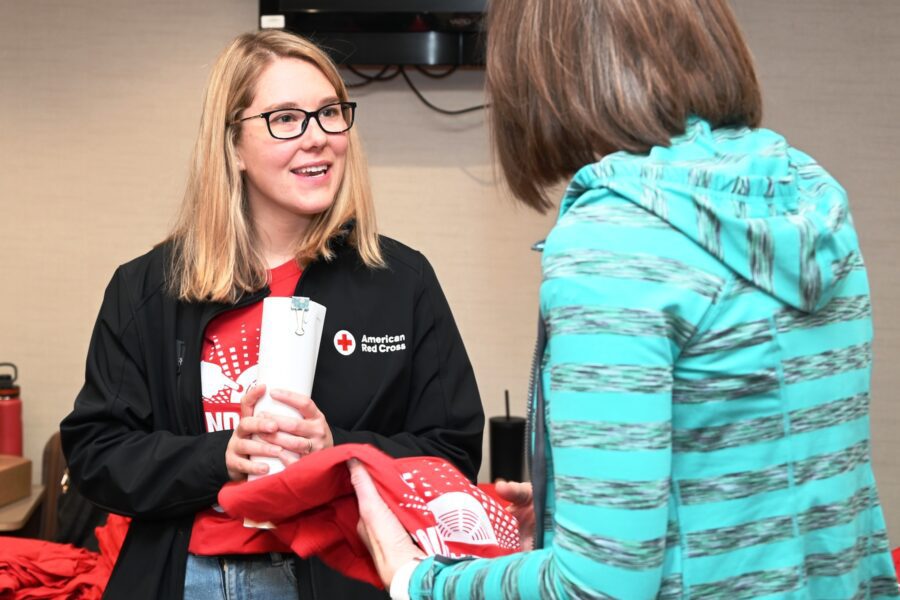
“At Olivet, the English Department belongs to readers, writers, and thinkers. Faculty and students alike love the literature that connects us to the perspectives and experiences of people across diverse times, cultures, and places. We acknowledge and endeavor to harness the transformative power of language in its myriad forms. And, in all our many pursuits, we strive to expand and deepen our capacity to understand, analyze, and explore…”
So starts the Department of English mission statement at Olivet and, I’d imagine, the essence of countless liberal arts programs across the country — an intentional emphasis more on who we hope to create than what we hope to do. When we sit as a group and discuss our purpose and our goals, the overarching theme is this: We hope to feed our students’ souls. Simply put, we hope to take our students’ passions for reading, writing and language and help them find ways to share these God-given talents and abilities to make the world a better place. A bit lofty, yes, but it doesn’t make it any less true.
Ever since I was a little kid, I’ve loved stories. As a child, my dad read us the Dr. Seuss books so many times that my three younger sisters and I would chant the lines of his verse by memory. When we were little, Theodor Geisel taught us the simple truths of the consequences of hate and persistence in the face of adversity, and those truths became more complex, nuanced and contextualized when I later engaged with Fitzgerald, Steinbeck, Hurston, Alexie and many others. These authors and stories were my companions, my mentors and my friends. They challenged my thinking on things like power and greed, love and forgiveness, mercy and justice, and helped me make meaning of the world in which I lived.
But, stories aren’t only important in the world of fiction and make believe — they make us who we are. They influence our perspectives, our actions and even what we spend our hard-earned money on. Want a practical example? Disney World sells stories to the tune of $10,000 for a weeklong vacation, and it’s not because their rides are bigger or better; it’s because each ride tells a story.
Even in tech fields, it’s the humanities folks who help create meaning and purpose for products. Michael Litt, co-founder and CEO of a tech startup, says that the “funny thing” is that he is “still hiring more humanities majors than STEM grads,” noting that developers only make up 15-25% their workforce. He explains that the “making part was relatively easy” but that it was “figuring out what people want part that was hard” (Litt). He emphasizes the A, for arts, in their company’s “STEAM” focus because of the need for “instinct, critical thinking, and a deeply contextualized understanding of human nature.” This is exactly what our majors do and what the humanities offer — an understanding of people and places, needs and desires.
Stories also tell us how to feel and what to value. Jayson Stark, an award-winning sports writer, summed it up well when he commented in response to a compliment from Joe Maddon on his craft, “Information is important. Writing, period, is important. …There is always going to be a need, in our world — I hope — for unique thinking, perspective and information.” Stark doesn’t just write about sports; he makes us feel, understand and hope.
As the chair of the English department here at Olivet, I should also tell you some other stories — true stories about the reality of English majors who are employed and fulfilled in their jobs. This is good news for us and our students for sure. We certainly do care about our students being employed, happy and successful, which is why we have made some major changes to our program over the last five years such as an internship option, the addition of a writing major, and a reduction of hours to allow for double majoring, to help create a clearer pathway between students’ interests and abilities and their future careers.
However, our students are not simply data points, which is why we work closely with each of our majors to help guide them to courses and programs to best prepare them for the future and why I’d like to leave you with two final stories of recent graduates. The first is of Kiley, one of our students who started at Olivet with an English major and, through a trip to Burkina Faso, Africa, and a summer internship with the Rafiki Foundation, realized that she was being called to teach English overseas. She currently serves in Ghana. The other, Michaela, who started at Olivet as an engineering major with the hope of being a Disney “Imagineer,” but whose love of literature and writing soon landed her with an English major, which she used to prepare for a law program that she will be completing next year.
Make that three final stories: Like me, my daughter Faith loves stories. At 11, she hopes to be a writer someday. I don’t know yet what God has in store for her life — if her writing will take her in the direction of novels and poems, sports writing or marketing. I do know, however, the type of person she will become with a humanities degree — someone who doesn’t just think well but thinks carefully, critically and creatively; someone who is aware of the complexities of life and the intersection of history, culture and politics; and someone whose heart is keenly attuned to the lives of others. Whether she is called into the literary world, a library, a classroom or the boardroom, I know she will be equipped. And I hope that the stories she will tell, real or imagined, just might feed people’s souls.





